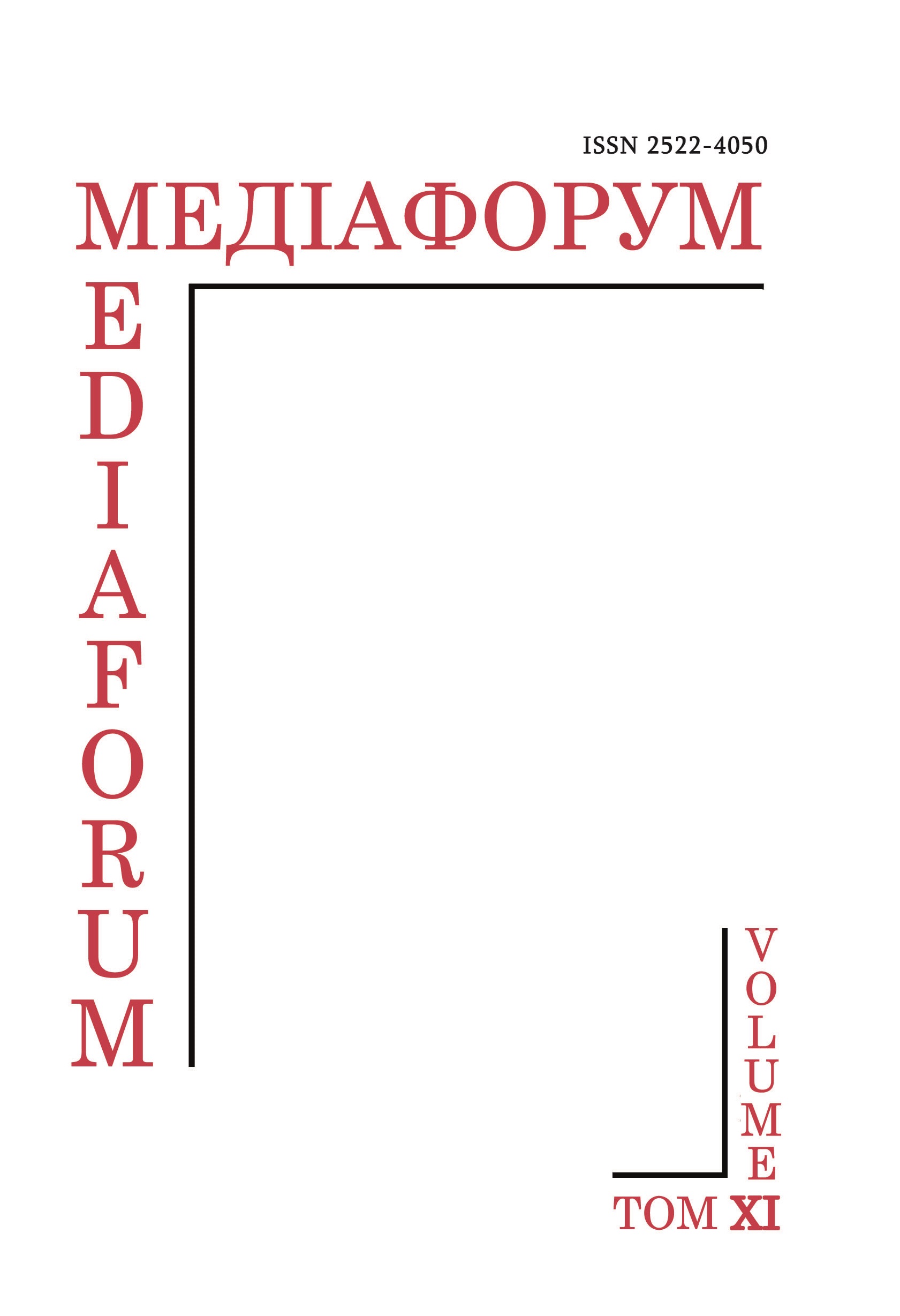The Influence of New Media and Social Networks on the Revolutionary Events of the «Arab Spring»
DOI:
https://doi.org/10.31861/mediaforum.2022.11.279-297Keywords:
«Arab Spring», Twitter/Facebook revolutions, protest movements, new media, social networks, Internet technologies, «Arab Awakening»Abstract
The article reveals a wave of revolutionary speeches, which was aimed at overthrowing dictatorial regimes and aimed at democratic transformations, called the «Arab Spring» or Twitter/Facebook revolutions. The reasons, prerequisites and factors of the formation of revolutionary situations in the countries of the Arab world are analyzed, as well as the nature and special features of revolutionary movements are investigated. The importance of information technologies and the influence of social networks on regime transformations and processes of social development in the Arab world are determined. The evaluation of the role of the youth factor in the deployment of protest activities during the revolutionary events in the countries of the Arab East is revealed.
Downloads
References
Zinko, S.Iu. 2009. Krainy Blyzkoho Skhodu v suchasnykh mizhnarodnykh informatsiinykh vidnosynakh. Lviv: Liha-Pres. 364 s.
Mykhailov A. i-Revoliutsyia. Syэtl, Ehypet, Fylyppynы, Belorussyia, dalee vezde. // http://www.medved-magazine.ru/articles/article_464.html
Chmelenko Yu. K voprosu o zaprete veshchanyia «Al-Dzhazyrы» v Yrake. http://vpoanalytics.com/2013/05/15/k-voprosu-o-zaprete-veshhaniya-al-dzha ziry-virake/
Bruns A., Highfield T., Burgess J. 2013. The Arab Spring and social media audiences: English and Arabic twitter users and their networks. American Behavioral Scientist, № 57(7). PP. 871-898.
Howard P., Duffy A., Freelon D., Hussain M., Mari W ., Mazaid M. 2011. Opening Closed Regimes What Was the Role of Social Media During the Arab Spring? https://www.library.cornell.edu/colldev/mideast/Role%20of%20Social%20Media %20 Dur ing%20the%20Arab%20Spring.pdf
McGarty C., Thomas E., Lala G., Smith L., Bliuc A. 2014. New technologies, new identities, and the growth of mass opposition in the Arab spring. Political Psychology. № 35(6). PP. 1-16.
Moustafa H. 2014. Social Networks in Syria: between Mediation and Mobilisation. Open Democracy. 05 November. https://www.Opendemocracy.net/arab-awakening/hamzeh-moustafa/social-networks-in-syriabetween-mediation-and-mobilisation
Our Story is Telling. https://network.aljazeera.net/about-us/timeline
Paul I., Zlutnick D. 2012. Networking Rebellion: Digital Policing and Revolt in the Arab Uprising. The Abolitionist. № 18: Surveillance URL: https://abolitionistpaper.wordpress.com/2012/08/29/networking-rebellion-digitalpolicing-and-revolt-in-the-arab-uprisings/
Percentage of Individuals using the Internet. International Telecommunication Union. http://www.itu.int/en/ITU-D/Statistics/Pages/stat/default.aspx
Postill J. 2016. Freedom Technologists and the Future of Global Justice. State of Power. https://www.tni.org/files/publication-downloads/state-of-power-2016- chapter8.pdf














